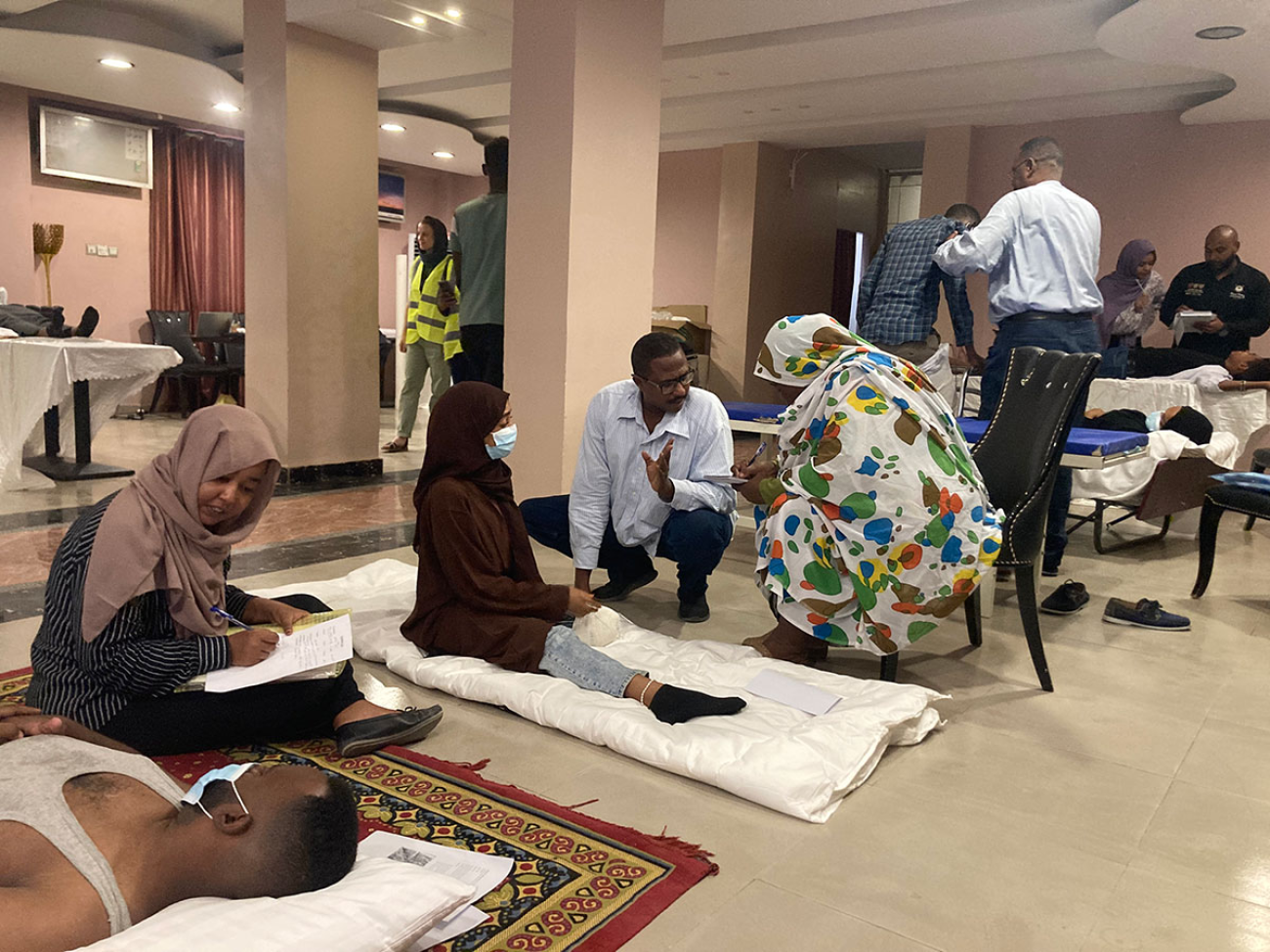WHO trains health workers on rehabilitation in conflict

WHO, in collaboration with the Federal Ministry of Health and the Ministry of Social Development, delivered a five-day training course on rehabilitation in conf
Since the onset of the war in Sudan in April 2023, many thousands of people have been injured, creating an enormous surge in complex life-changing injuries that require rehabilitation care. The non-conflict related needs for rehabilitation, such as for those who have experienced a stroke or for children with disability, remain or have increased due to consequences of displacement. Accessing rehabilitation services has become more complex while the need has grown. Many rehabilitation services, including the National Prosthetics and Orthotics Centre in Khartoum, have closed or are inaccessible. The war has severely disrupted those that remain, and much of the workforce has been displaced. Facilities cannot obtain materials and equipment needed to carry out their work, and assistive products such as wheelchairs and crutches are scarce.
World Health Assembly resolution 76.6 reaffirmed that rehabilitation is an essential health service in emergencies. Not accessing or delayed access to rehabilitation services can have severe consequences for patients, resulting in secondary complications and preventable disability. Conversely, with early access to quality rehabilitation services, the length of hospital stay can be reduced, complications prevented or minimized, an individual’s independence optimized, and participation in community life enhanced. As a direct result, rehabilitation is a wise investment amid conflict, reducing the cost of ongoing care, optimizing patient outcomes, and supporting individuals to participate in education and employment.
Even before the onset of conflict, rehabilitation services in Sudan were fragmented and poorly integrated into the health system. They were mostly only available to those able to pay out of pocket and primarily only available in the Capital, Khartoum, which is now at the centre of the conflict. Now, the need for rehabilitation services in Sudan has never been greater, and each rehabilitation professional is a precious resource for the health system.
In May 2024, WHO, in collaboration with the Federal Ministry of Health and the Ministry of Social Development, delivered a five-day training course on rehabilitation in conflict in Port Sudan. The training included practical sessions on prioritizing patients, clinical scenarios, and an in-depth overview of managing complex patients in low-resource settings, such as burns and spinal cord injuries. The training course was the first of its kind to be run by WHO in the Eastern Mediterranean Region, and it is hoped it can be used as a model to roll out similar training across the region in conflict settings.
Participants thanked WHO and the Federal Ministry of Health for the opportunity to be trained on rehabilitation care in conflict settings, especially when their country is undergoing conflict and such skills are urgently needed.
Both the Ministry of Health and the Ministry of Social Development expressed their appreciation for the World Health Organization's efforts in conducting the inaugural joint workshop on rehabilitation in conflict. They emphasized the importance of ongoing collaboration in this critical area, especially in light of the country's current crisis.
The training included a simulation exercise on managing a surge of injured persons needing early acute rehabilitation at a hospital. The exercise required course participants to work as a team to respond to the event using their existing and newly acquired trauma rehabilitation skills in a realistic mock scenario. Following the training, participants and local stakeholders developed a roadmap and action plan to scale up essential rehabilitation services during the conflict.
Hala Khudari, Deputy WHO Representative ai to Sudan, reaffirmed the organization’s commitment to supporting trauma care as part of its emergency health response in Sudan. “WHO has been providing supplies for trauma management and emergency surgery since the start of the conflict. We have also conducted trainings on mass casualty management,” she said. “Rehabilitation is an integral part of trauma care, and we are not only pleased to be conducting this inaugural training but also remain committed to collaborating with our partners to provide the necessary support for the implementation of rehabilitation care in Sudan.”


